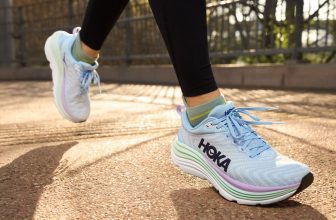
[ad_1]
Basically, what we’re saying is if you’re a straight-from-the-bottle swisher, there’s no judgment here. But at the same time, we have to wonder: Does it keep your mouth from getting as clean and fresh?
What happens when you swish mouthwash straight from the bottle
Germs are reintroduced
Let’s put it this way: Dentists do not recommend sipping straight from the Listerine jug. “Swishing straight from the bottle is like giving all the germs in your mouth a free ride back to the mouth each time you swish again,” says Nicole Mackie, DDS, MS, FACP, a board-certified prosthodontist, dental implant specialist, and dentist. “It introduces bacteria and other microorganisms from the mouth back into the mouthwash bottle.”
“Swishing straight from the bottle is like giving all the germs in your mouth a free ride back to the mouth each time you swish again. It introduces bacteria and other microorganisms from the mouth back into the mouthwash bottle.”—Nicole Mackie, DDS, MS, FACP
This can be an especially present problem if you share mouthwash with a partner or child, adds Nathan Oakes, DMD, the practice owner of Aspen Dental. That can lead to indirectly sharing bacteria and food particles (ick).
Experts In This Article
- Bill Dorfman, DDS
- Nathan Oakes, DMD, Nathan Oakes, DMD, is the practice owner of Aspen Dental.
- Nicole Mackie, DDS, MS, FACP, Nicole Mackie, DDS, MS, FACP, is a board-certified prosthodontist, dental implant specialist, and dentist
According to celebrity cosmetic dentist Bill Dorfman, DDS, this habit isn’t toxic, but it can go as far as worsening your oral health—and general health. “If harmful microorganisms get into your mouthwash, it can increase the risk of infection to your mouth and throat,” he says. “And if multiple people share the same contaminated mouthwash, it can become a vector for transmitting colds, flu, or other contagious diseases.”
The cleaning properties are inhibited
It’s also just generally less effective. “Swishing directly from the bottle impedes the antiseptic properties, fluoride content, and the specifically formulated balance of all of the active ingredients, most of which target specific dental issues,” Dr. Mackie adds.
You may not get enough mouthwash
Dr. Oakes also doesn’t love how this method leaves you guessing. “Swishing directly from the bottle does not allow you to accurately measure the therapeutic dose recommended by the manufacturer,” he says, adding most mouthwashes recommend one ounce for 30 to 60 seconds.
More tips on mouthwash and dental care
Given all of that, Dr. Mackie recommends pouring mouthwash into the cap or a small cup twice a day (once in the morning, and once before bed). The dosage and length of the swish may differ, she adds, so refer to the bottle’s instructions.
Not sure which mouthwash to use? Here are some of the different kinds and ingredients, as well as how each one can help, according to Dr. Mackie:
- Mouthwashes with whitening variants help remove surface stains and restore teeth to a lighter shade
- Anti-tartar variants reduce the formation of plaque and tartar, which can prevent or contain periodontal diseases
- Anti-cavity mouthwashes usually have fluoride, which can prevent tooth decay and strengthen enamel
- Dry-mouth variants usually have moisturizing ingredients to alleviate dry mouth
Dr. Oakes encourages talking to your dentist to ensure you get the mouthwash that best fits your needs. More generally, though, he says to get one that’s alcohol-free (so your mouth doesn’t dry out) and has fluoride to prevent cavities. Additionally, he notes to brush and floss before swishing, and to avoid rinsing your mouth for 30 minutes after the swish.
Lastly, Dr. Dorfman emphasizes the importance of cleaning the bottle’s cap (or shot glass), aka, whatever you put the mouthwash in. If you don’t want to do that, disposable cups are a great option, he says.
So yes, while it’s easier to just swish from the bottle at the end of the day, doing so won’t give you the benefits you’re hoping for. But thankfully, you’ve got an easy fix.
[ad_2]
Source link





